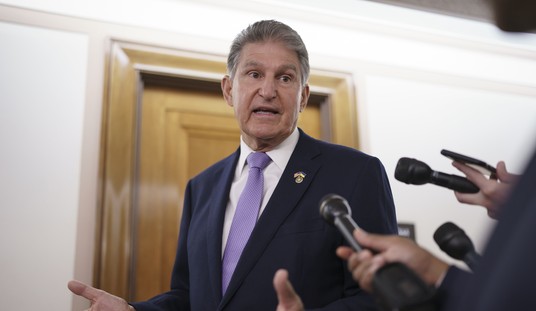It's not the reason you think. Not even close.
As Luigi the murderer is being celebrated for stickin' it to the man, killing a health insurance executive and winning plaudits for doing so, the conversation over America's less-than-stellar life expectancy numbers compared to other Western countries.
We hear all the time about America's failing healthcare system and the trillions of wasted dollars, the excessive profits, and the meannastyugly executives who are killing Americans for fun and profit.
I will freely admit that our healthcare financing system is broken, our medical training is broken, and the system could be made more effective and efficient. Very few of these problems are attributable to the practices of health insurers, and the lifespan deficits in America have absolutely nothing to do with denial of care.
There may be examples where denial of care is the cause of somebody's death and suffering, of course, since no system is perfect and every system can be approved, but the fact is that Americans actually consume much more healthcare than other people around the world, both in dollar terms and in absolute measures. We get more care faster, and the results of interventions to treat specific diseases are generally more successful here than elsewhere.
So why the disparity?
Johns Hopkins asked that question, and the results shouldn't surprise you. Americans lead unhealthy lifestyles, eat poorly, do more dangerous drugs, and are more likely to kill each other. I would toss in another factor: we don't juke our numbers as much as other countries. We work harder to save premie babies and count infant mortality more rigorously. That drives down lifespan numbers, too.
An overdose, a preventable heart attack, or dying from murder doesn't come down to a healthcare failure. They may be the result of a policy failure but not the profit margin of an insurer.
A new report from the Bloomberg American Health Initiative at the Johns Hopkins Bloomberg School of Public Health finds that life expectancy in the United States is, on average, 78.6 years versus 81.3 years in England and Wales, an overall 2.7-year difference.
The analysis, which reviewed causes of death based on newly released 2023 data, found that preventable causes—heart disease, overdose, firearm violence, and motor vehicle crashes—explain the almost three-year gap in life expectancy.
The report, A Tale of Two Countries: The Life Expectancy Gap Between the United States and the United Kingdom, offers evidence-based solutions from Johns Hopkins public health experts to close this gap and to increase lifespans in the U.S.
The report is to be announced by Michael R. Bloomberg, founder of Bloomberg L.P. and Bloomberg Philanthropies and WHO Global Ambassador for Noncommunicable Diseases and Injuries, at the seventh annual Bloomberg American Health Summit in Washington, D.C. The Summit is convening public health leaders, government officials, community organizations, researchers, and students to discuss the urgent need to uphold evidence-based health policies to improve life expectancy in a politically divided country.
“There is simply no good reason why people in the U.S. can expect to die nearly three years earlier than their counterparts across the Atlantic,” says Joshua M. Sharfstein, MD, director of the Bloomberg American Health Initiative and vice dean for Public Health Practice and Community Engagement at the Bloomberg School. “If we choose programmatic and policy solutions based on evidence, we will close this gap.”
In 1984, life expectancy in the U.S. and the U.K. was the same. But the gap has widened over time, peaking in 2022 during the pandemic with a difference of 4.7 years, as the two countries have taken different directions on health and social policy on issues that include dietary sodium, firearm policy, addiction treatment, injury prevention, COVID-19, and health care. The U.S. health care system is particularly unable to deliver needed preventive services equitably and at scale.
I don't mean Americans pay higher prices for the same amounts of care, but that Americans consume much higher volumes of care. They do more check-ups, get more screenings, take more tests, dose more drugs, get more surgeries... and so on!
— Crémieux (@cremieuxrecueil) December 11, 2024
You can predict spending from volumes: pic.twitter.com/PB6zW5pmOX
The US healthcare system has many problems, some of which are related to medical care. Iatrogenic deaths are far too high (deaths caused by doctors and medical treatments themselves), expensive medications tend to be preferred even when they don't work too well, and obviously, our public health system is failing. Lawyers often drive care decisions, and bureaucracy is out of control. The AMA artificially restricts the supply of doctors, and our medical system is specialist-heavy with too few family doctors.
But if we fixed these things we would wind up spending less, not more.
You can read a full grading of the killer's manifesto here: https://t.co/fW5A4ZyqUL
— Crémieux (@cremieuxrecueil) December 11, 2024
No doubt, insurance companies routinely deny certain treatments to reduce costs, but in almost all those cases, the denials can be appealed, and if the treatment is really medically necessary, they will get approved. This is a response to the fact that doctors often prescribe treatments to please patients who want a certain drug or treatment that may not be appropriate. In many cases, unfortunately, the doctor doesn't want to waste the time fighting with a patient over what to him seems a minor issue. He is busy and needs to see the next patient because there are too few of his colleagues to see everyone.
My personal care physician, when she retired, had over 1500 patients assigned to her. She and I had a great working relationship, but I couldn't imagine having that many people under your care. If you want to blame somebody for that problem, look to the AMA and the medical/academic complex and the incentives to go into specialties that pay more. If we educated more doctors and relied less on specialists, the system might work better.
Systems that don't rely on the profit motive--such as Canada's and the UK's--are disasters. Whatever statistics you want to trot out don't tell the story--they are worth as much as the government statistics here that keep telling you that the economy is roaring and Americans are doing great! The truth is that getting care can be a nightmare, and in Canada, people are choosing assisted suicide in cases where they can't get care.
If we want to improve lifespans, we should listen more to RFK and less to Bernie Sanders. Our best doctors for most conditions are ourselves. We control most of the reasons why we get chronic diseases. I am as bad as anyone about not taking care of myself, so I am not virtue signaling here. It's just true.
If we were to start over designing a health care system it wouldn't look like the one we have, which is a Rube Goldberg-designed mess.
But the villains, if there are any, are in Congress and state legislatures, not in the health insurance C-suites.








